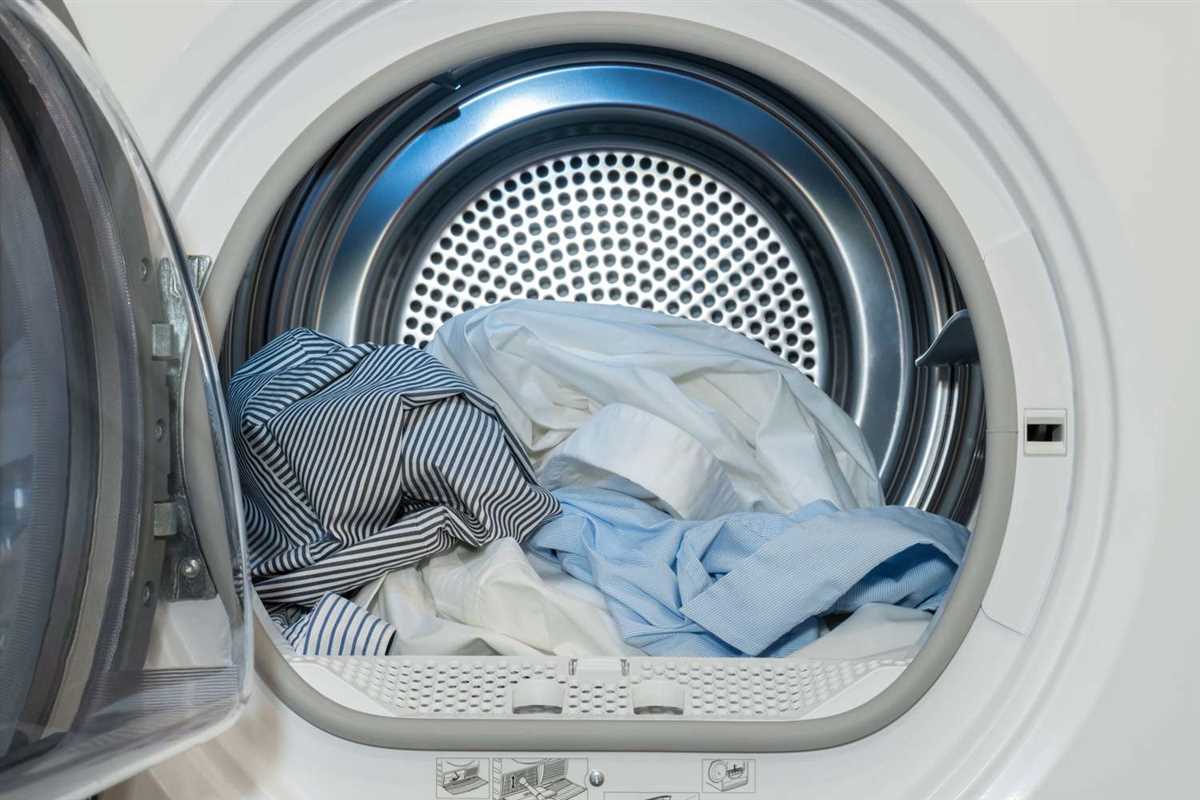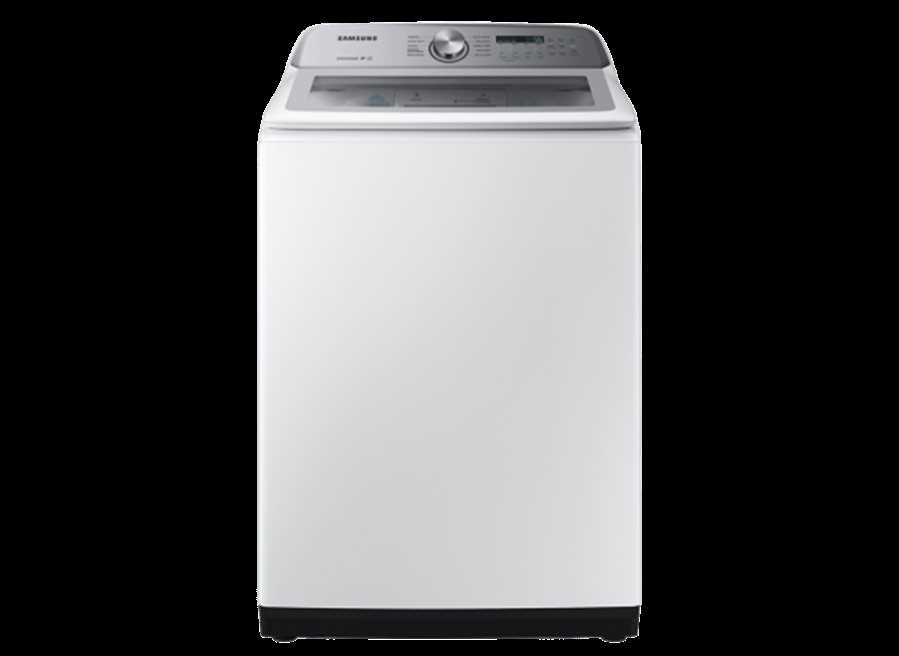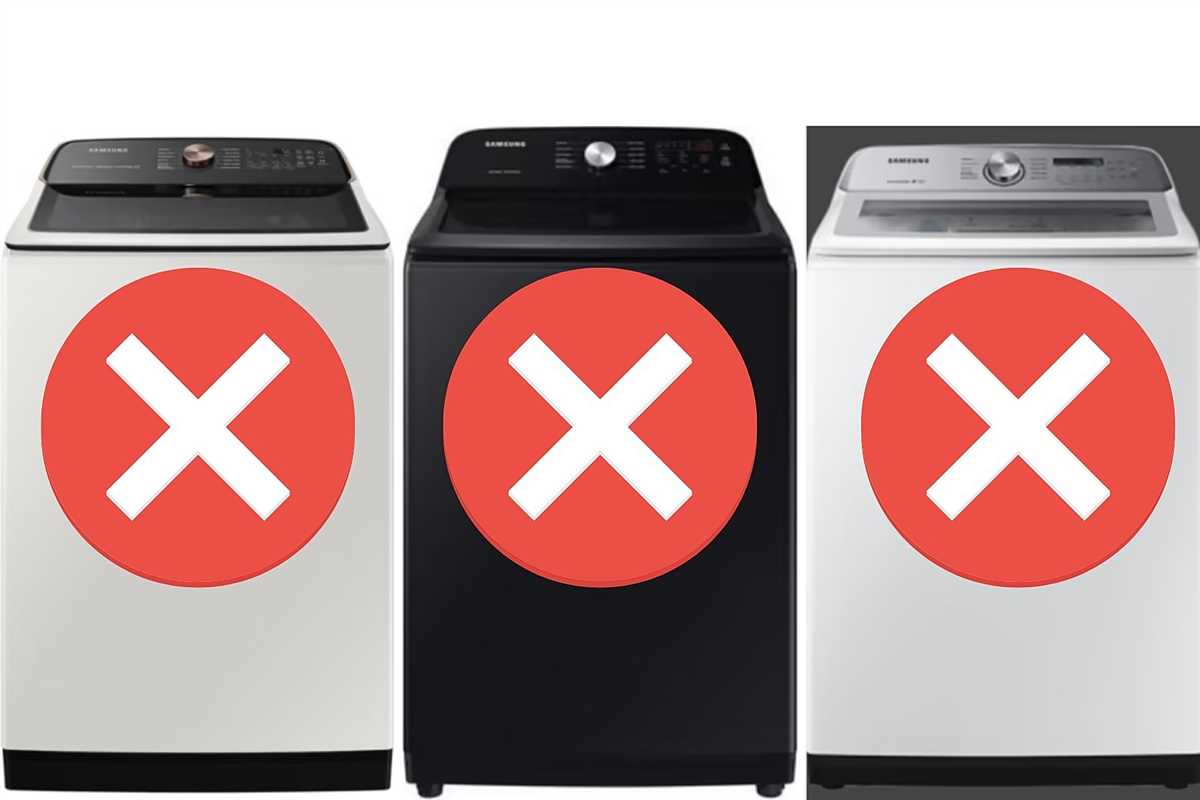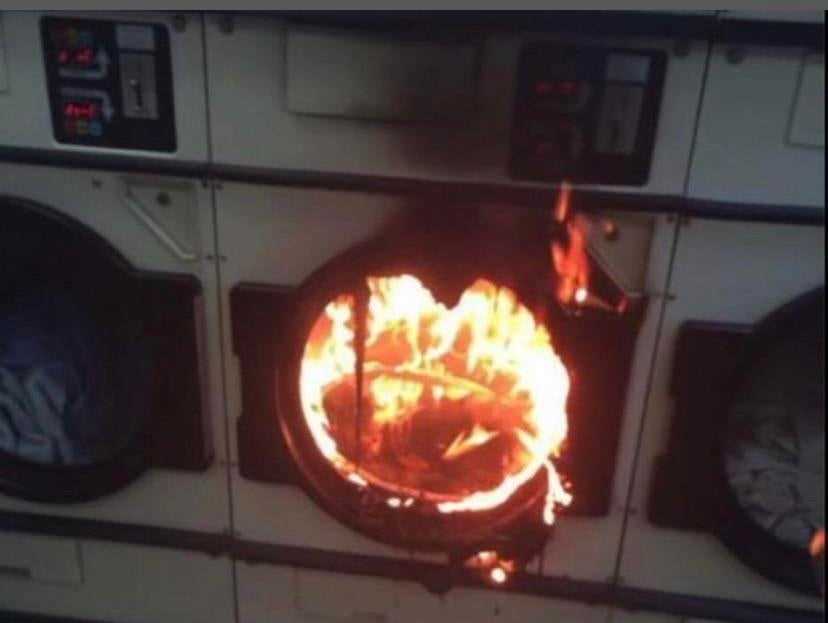
Washing machines are an essential appliance in every household, helping to keep our clothes clean and fresh. However, there have been cases where washing machines have caught fire, posing a significant risk to both property and life. It is crucial to understand the causes of these fires and take the necessary prevention measures to ensure the safety of your home and loved ones.
One of the main causes of washing machine fires is a malfunctioning or overheating of the machine’s electrical components. Over time, the wiring and connections in the machine can degrade, leading to sparks and short circuits. Additionally, lint and fluff buildup in the dryer vents can become a fire hazard if not cleaned regularly.
Another common cause of washing machine fires is the incorrect use of the appliance. Overloading the machine with too many clothes or using it for items that are not suitable for washing can put excessive strain on the motor and create a risk of fire. It is crucial to follow the manufacturer’s guidelines regarding load capacity and proper usage to prevent accidents.
To prevent washing machine fires, regular maintenance and inspections are essential. This includes cleaning out the lint traps and dryer vents, checking the electrical connections, and ensuring that the machine is properly installed and grounded. It is also advisable to avoid leaving the machine unattended while it is running and to avoid running it overnight or when no one is home.
In conclusion, while washing machines are convenient and helpful appliances, they can pose a fire risk if not properly maintained and used. Understanding the causes of washing machine fires and taking the necessary prevention measures can help ensure the safety of your home and minimize the risk of accidents.
Risks of Washing Machines Catching Fire
Washing machines can be a convenient and essential appliance in any household. However, it is important to be aware of the potential risks associated with washing machines catching fire. While it is not a common occurrence, understanding these risks can help prevent accidents and ensure the safety of your home and family.
1. Overheating
One of the main causes of washing machines catching fire is overheating. This can happen if the machine is used for an extended period of time without a break or if the motor or other components become damaged or malfunctioning. Overheating can lead to electrical fires and should be taken seriously.
2. Electrical Malfunction
Electrical malfunctions can also pose a fire risk in washing machines. This can happen if there are faulty electrical connections, frayed wires, or damaged electrical components within the machine. Regular maintenance and inspections can help identify and prevent these potential issues.
3. Flammable Substances

Another risk factor for washing machines catching fire is the presence of flammable substances. These include items such as oil, grease, cleaning agents, and fabric softeners. If these substances come into contact with hot surfaces or electrical components, they can ignite and cause a fire. It is important to properly store and handle these substances to minimize the risk.
4. Improper Use
Improper use of washing machines can also increase the risk of fire. This includes overloading the machine, using incorrect detergents or cleaning agents, or using the machine in an unsafe environment. Always follow the manufacturer’s instructions and guidelines to ensure safe operation.
5. Age and Condition
The age and condition of the washing machine can also contribute to the risk of fire. Older machines may have worn or damaged electrical components that are more prone to malfunctioning. Regularly inspecting and maintaining your washing machine can help identify any potential issues and reduce the risk of fire.
6. Lack of Maintenance

A lack of regular maintenance can increase the risk of washing machines catching fire. It is important to clean and inspect the machine regularly, ensuring that any build-up of lint or debris is removed. This can help prevent overheating and reduce the risk of fire.
Conclusion
While the risk of washing machines catching fire is relatively low, it is important to be aware of these potential risks and take appropriate measures to prevent accidents. Regular maintenance, proper use, and safe handling of flammable substances are key in ensuring the safety of your home and family.
Understanding the Potential Hazards
While washing machines are convenient and essential appliances in our homes, it’s important to be aware of the potential hazards they pose. Understanding these risks can help you take the necessary precautions to prevent accidents and keep your home safe.
1. Electrical Fires
One of the main hazards associated with washing machines is the risk of electrical fires. This can occur due to faulty or damaged electrical components, overheating, or improper electrical connections. It’s crucial to regularly inspect your washing machine’s electrical system, including the power cord and plug, to ensure they are in good condition. If you notice any signs of damage or wear, such as frayed wires or loose connections, it’s important to have a qualified electrician repair or replace them immediately.
2. Overheating
Washing machines generate heat during their operation, but excessive heat can lead to overheating and potential fire hazards. This can happen if the machine is overloaded with clothes, obstructed ventilation, or if there are issues with the heating element. To prevent overheating, make sure to follow the manufacturer’s guidelines for the maximum load capacity and avoid blocking the vents or air circulation around the appliance. If you notice any unusual smells or excessive heat coming from the machine, it’s essential to turn it off and have it inspected by a professional.
3. Water Leaks
Water leaks are another potential hazard associated with washing machines, especially if the water supply hoses or connections are damaged or not properly secured. A leak can lead to water damage, the risk of electrical shock, or even flooding. Regularly check the hoses and connections for signs of cracks, bulging, or leaks. Replace any damaged or worn-out parts immediately and ensure that the hoses are properly tightened to prevent water leaks.
4. Chemical Hazards
Some washing machines require the use of cleaning agents or detergents that may contain hazardous chemicals. It’s important to handle these substances with care and follow the manufacturer’s instructions for their proper use and storage. Avoid mixing incompatible cleaning agents, as this can lead to dangerous reactions or the release of toxic fumes. Always keep these chemicals out of reach of children and pets to prevent accidental ingestion or exposure.
5. Misuse and Improper Maintenance
Improper use and maintenance of washing machines can also pose potential hazards. This includes overloading the machine, using it for purposes other than washing clothes, or neglecting routine cleaning and maintenance. These actions can cause mechanical stress, increase the risk of electrical or mechanical failures, and compromise the overall safety of the appliance. Always follow the manufacturer’s guidelines for operation, maintenance, and safety precautions to ensure the safe and efficient use of your washing machine.
By understanding the potential hazards associated with washing machines and taking appropriate preventive measures, you can minimize the risks and enjoy the convenience of this essential household appliance with peace of mind. Regular inspections, proper maintenance, and safe handling of chemicals are key to ensuring the safety of both your household and the appliance itself.
Causes of Washing Machine Fires
Washing machine fires can be caused by various factors. Understanding these causes can help users take necessary precautions to prevent fire incidents. Here are some common causes of washing machine fires:
- Overheating: Overheating is a major cause of washing machine fires. This can occur due to mechanical or electrical failure, such as a malfunctioning thermostat, heating element, or motor. Overheating can ignite nearby flammable materials, leading to a fire.
- Lint buildup: Accumulated lint and other debris can obstruct the dryer vent and exhaust system. This obstruction can create a buildup of heat, increasing the risk of a fire. Regular cleaning of lint filters and exhaust vents is essential to prevent such incidents.
- Faulty wiring: Faulty wiring within the washing machine can cause electrical sparks and arcing, which can ignite nearby combustible materials. The wiring system should be regularly inspected and repaired by a qualified professional to prevent fire hazards.
- Improper use of the machine: Using the washing machine for purposes other than laundry, such as drying flammable materials like rags or newspapers, can pose a fire risk. It is essential to follow the manufacturer’s instructions and guidelines for proper machine usage.
Note: Regular maintenance and inspection of washing machines can help identify potential fire hazards and prevent accidents. It is important to consult a professional technician for any repairs or maintenance tasks.
Signs of a Potentially Dangerous Washing Machine
- Strange Noises: If your washing machine is making unusual banging, clanging, or grinding noises during operation, it could be a sign of malfunction. This could indicate that certain parts of the machine are faulty or loose, increasing the risk of fire.
- Foul Odors: Unpleasant smells coming from the washing machine, especially when it is in use, can be a red flag. It could suggest that there is a buildup of lint or other debris within the machine, increasing the risk of fire.
- Excessive Vibration: If your washing machine is vibrating excessively or shaking violently during operation, it could indicate an imbalance or a problem with the drum or motor. This can potentially lead to friction and overheating, increasing the risk of fire.
- Hot Exterior: A washing machine that feels excessively hot to the touch on the outside, especially on the top or sides, may indicate a problem with the internal temperature regulation mechanisms. This can lead to overheating and potentially cause a fire.
- Sparks or Smoke: Any occurrence of sparks or smoke coming from the washing machine is a clear sign of a serious issue. It is essential to unplug the machine immediately, as it poses an imminent danger of fire.
- Burning Smell: A persistent burning smell originating from the washing machine, during or after operation, is a significant warning sign. It could indicate problems with the motor, electrical components, or wiring, all of which can potentially lead to a fire.
It is crucial to regularly inspect your washing machine for any of these signs. If you notice any of the above issues, it is recommended to consult a professional technician to assess and repair the machine promptly. Furthermore, following proper maintenance practices, such as regular cleaning and maintenance checks, can help prevent potential dangers and ensure the safe operation of your washing machine.
Preventing Washing Machine Fires

Regular Maintenance

- Regularly inspect the electrical cords and plugs for any signs of damage or wear and replace them if necessary.
- Clean the lint filter before or after each use to prevent lint buildup, which can contribute to fires.
- Check the hoses and connections for any leaks or cracks, and replace them if needed.
Proper Usage
- Do not overload the washing machine, as this can strain the motor and increase the risk of a fire.
- Avoid using flammable liquids, such as gasoline or solvents, near the washing machine.
- Never leave the washing machine unattended while it is in use.
- Follow the manufacturer’s instructions for detergent usage and do not exceed the recommended amount.
Additional Safety Measures
- Install a smoke detector near the laundry area to provide early detection of any potential fire.
- Keep a fire extinguisher in the vicinity of the washing machine and make sure all household members know how to use it.
- Consider installing a fire sprinkler system in the laundry room for added protection.
Professional Inspection
- Have a professional inspect your washing machine and its components at least once a year to identify any potential issues and address them promptly.
Conclusion
By following these preventive measures, you can significantly reduce the risk of a washing machine fire. Regular maintenance, proper usage, and additional safety measures are essential for ensuring the safety of your home and family.
Important Safety Tips and Maintenance
- Always read and follow the manufacturer’s instructions and safety guidelines for your washing machine.
- Before using the washing machine, check the power cord and plug for any damages. If there are any issues, it is important to have them repaired or replaced by a qualified professional.
- Make sure that the washing machine is connected to a properly grounded electrical outlet.
- Do not overload the washing machine with too many clothes. Follow the manufacturer’s recommendations for maximum load capacity.
- Carefully check all pockets of your clothes before putting them in the washing machine. Loose coins, keys, or other small objects can cause damage to the machine or even start a fire.
- Do not use damaged or frayed electrical cords or extension cords with a washing machine.
- When using your washing machine, never leave it unattended. Always stay nearby and be aware of any unusual noises, smells, or movements.
- Regularly clean the lint filter of your washing machine to prevent the buildup of lint and debris. A clogged filter can overheat and cause a fire.
- Inspect the water hoses connected to the washing machine for any signs of wear or damage. Replace them if necessary.
- Keep the area around the washing machine clean and free from any flammable materials or liquids.
In addition to following these safety tips, it is important to perform regular maintenance on your washing machine to ensure its proper functioning and reduce the risk of fire:
- Check and clean the detergent dispenser drawer regularly to prevent clogs or build-up of detergent residue.
- Inspect and clean the drum of the washing machine to remove any debris or lint that may have accumulated.
- Regularly clean the rubber door seal to prevent the growth of mold and mildew.
- Inspect the water inlet filters for any debris or blockage, and clean or replace them as needed.
- Have your washing machine professionally serviced and inspected at least once a year to detect any potential issues early on.
By following these safety tips and performing regular maintenance, you can significantly reduce the risk of fire and ensure the safe operation of your washing machine.
FAQ
Are washing machines a fire hazard?
Yes, washing machines can be a fire hazard if certain conditions are present. Although rare, fires can be caused by electrical faults, overheating, or blocked lint filters.
What are the common causes of washing machine fires?
The common causes of washing machine fires include electrical faults, overheating due to blocked filters, and flammable substances like oil or gasoline accidentally coming into contact with the machine.
How can I prevent a washing machine fire?
There are several prevention measures you can take to reduce the risk of a washing machine fire. These include regular maintenance and cleaning, not overloading the machine, avoiding leaving it unattended while in use, and ensuring proper ventilation in the laundry area.
What should I do if my washing machine catches fire?
If your washing machine catches fire, it is important to stay calm and act quickly. Turn off the machine, unplug it from the power source, and call the fire department. Do not attempt to put out the fire yourself and evacuate the area if necessary.












